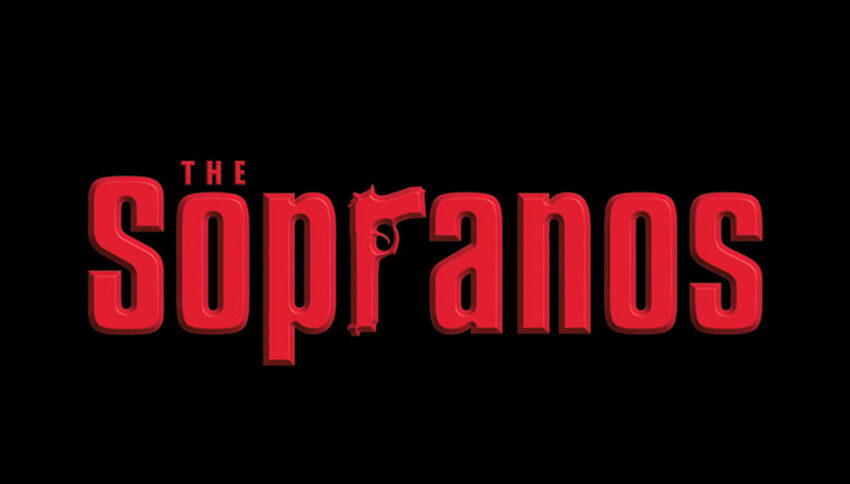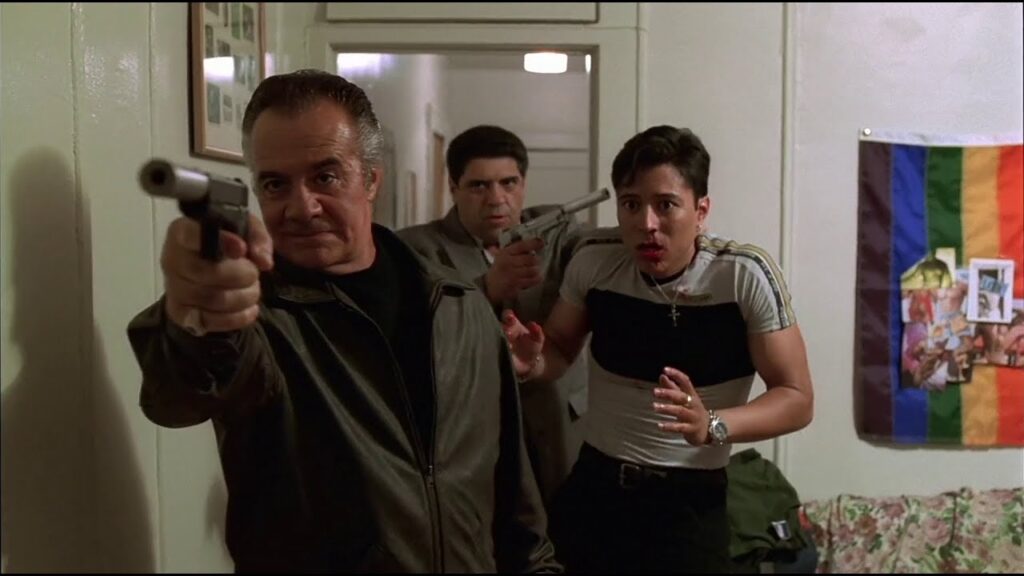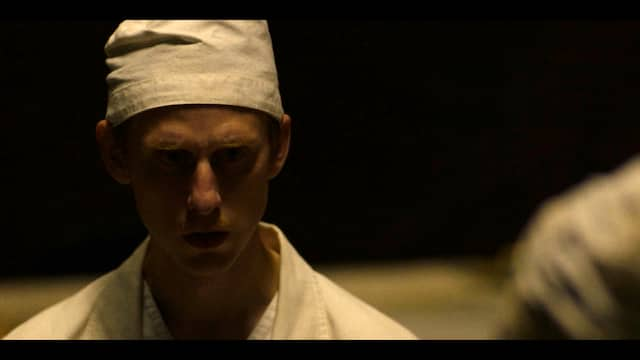
“The Sopranos” Episode 1 – “The Sopranos” (Pilot)

After a pilot episode that forever altered the landscape of television storytelling, episode 2, “46 Long,” had an uphill battle. Yet, it managed to both maintain the momentum and add layers of complexity to the narrative and characters. As the show’s second episode, “46 Long,” had the unenviable task of sustaining the monumental interest generated by the pilot. Written by David Chase and directed by Dan Attias, the episode efficiently tackled multiple character arcs and themes while setting up some crucial storylines that would unfold throughout the first season.
The Characters
Tony Soprano: Tony continues to confront the two worlds he inhabits: one of organized crime, and another as a family man trying to please everyone around him. James Gandolfini gives another stellar performance, showing Tony as a mob boss who deals with everyday problems like any other suburban dad but with the additional stress that triggers his panic attacks.
Dr. Jennifer Melfi: Episode 2 solidifies Dr. Melfi (Lorraine Bracco) as a vital part of Tony’s life. The therapy sessions aren’t just about discussing Tony’s anxiety but delve into deeper issues such as his fraught relationship with his mother, Livia. This sets up a significant dynamic that permeates through the first season.
Carmela Soprano: “46 Long” expands on Carmela’s character (Edie Falco), focusing on her spiritual dilemmas and complex moralities. She is torn between her role as a supportive wife and mother and her increasing awareness of the ethical complexities associated with her luxurious lifestyle.
Christopher Moltisanti: Christopher’s (Michael Imperioli) impulsive behavior and ambition become more evident in this episode. The truck hijacking subplot serves as a peek into his character, highlighting his recklessness—a trait that will have long-term repercussions as the season progresses.

Plot and Themes
This episode cleverly integrates several storylines that will evolve into more significant plot points later in the season. The seemingly mundane concerns about Livia’s living conditions, especially regarding her safety and reluctance to move into a retirement community (“Green Grove”), become central plot elements down the line.
Another plot point, the hijacking of a Comley truck orchestrated by Christopher and Brendan Filone, serves to accentuate the internal fissures within the Soprano crime family. The hijacking not only demonstrates Christopher’s impatience to climb the mafia hierarchy but also foreshadows tensions involving higher-ups like Uncle Junior.
Behind-the-Scenes Details
David Chase has repeatedly expressed how “The Sopranos” was influenced by his experiences, and a lot of the New Jersey depicted in the show is taken from his own life. For instance, Dr. Melfi was partly inspired by Chase’s own experiences with therapy. The character’s ethical dilemma over treating Tony was an innovative approach to examining the mob life from a perspective of moral ambiguity.
The casting also continued to play a significant role in the show’s success. Many of the actors, like Tony Sirico (Paulie Walnuts) and Steven Van Zandt (Silvio Dante), were not conventional actors but were perfect for their roles. This episode sees them getting more comfortable in their characters, which contributes to the authenticity that the series would become known for.
Implications for Season One Storylines
Tony’s panic attacks and his therapy with Dr. Melfi are central to the season’s overarching narrative. The therapy sessions become the core mechanism through which viewers understand Tony’s struggles, adding a psychological layer to the crime drama genre. The decisions Tony makes based on his revelations in therapy set the stage for conflicts that intensify as the season progresses.
The episode also plants seeds for the conflicts that would arise around Livia Soprano. Her manipulation and effect on Tony become more crucial as the season progresses, and the groundwork is laid here.
“46 Long” is a crucial episode in the “The Sopranos” lexicon. It consolidates the innovative storytelling of the pilot while adding new layers of complexity to the characters. Its nuanced handling of multiple storylines creates a rich tapestry that allows the series to explore both plot-driven and character-driven narratives, all while setting up critical story arcs that carry through the first season and beyond. In doing so, the episode confirms that the show is not just another crime drama but a detailed psychological study of its characters, enmeshed in a world of moral ambiguity and existential crises. It’s this intricate blend that makes “The Sopranos” not just compelling television but a landmark in the medium’s history.




